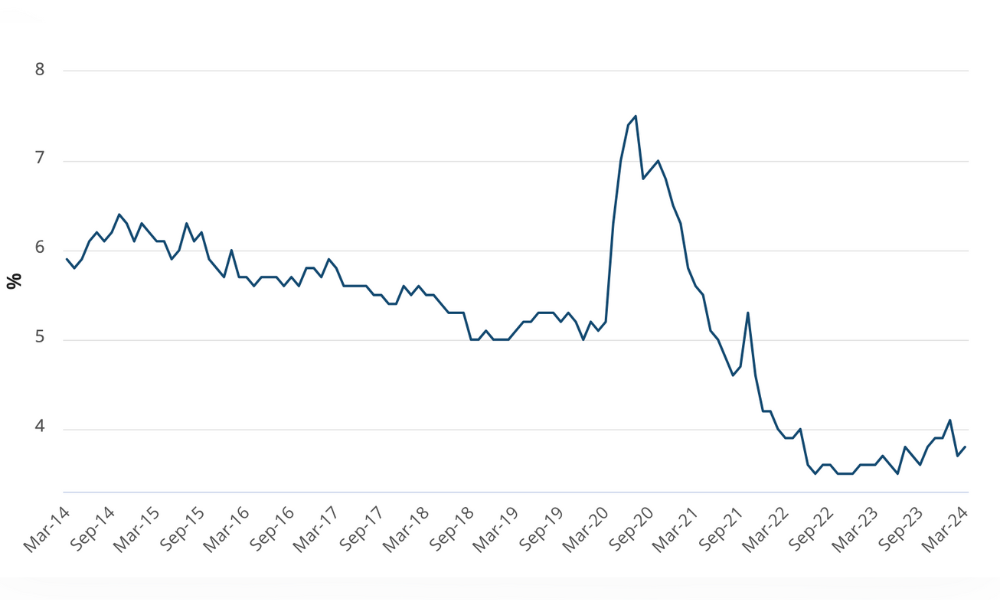HR needs to take a few key steps in order to partner effectively with businesses. Melissa Yen speaks with Todd Smith, CFO of GE Commercial Finance, Australia/NZ, about these steps and how HR can deliver on executive expectations
HR needs to take a few key steps in order to partner effectively with businesses. Melissa Yen speaks with Todd Smith, CFO of GE Commercial Finance, Australia/NZ, about these steps and how HR can deliver on executive expectations
What are your impressions about the business effectiveness of HR in general?
In the GE community, HR is a critical part of our business and strategy. I think they play a very critical role in terms of helping support growth of the business. We view HR as paramount to making the key strategic business decisions. So I think their effectiveness is high, particularly as they are very well integrated into our decision making process.
What role does HR play in your business?
Firstly, HR has a great opportunity to play a role in helping us design the infrastructure for our growth in terms of the number of resources needed to reach that growth. Secondly, they assist with fitting the organisational structure with the business, ensuring we are organised and aligned. Finally, we seek their help in developing and securing the right level of talent. So it’s kind of a three-functional piece, but we really look at how they help us set up the capability to meet our strategic growth requirements.
Does HR work with you effectively as a business partner in achieving these priorities?
They really do. I have a dedicated HR leader for my finance function and she is effectively integrated into my team, just like any of my other direct reports. She attends my weekly staff meetings and is a part of my planning sessions. Certainly she’s involved in any talent development and human resources planning we do. I view her the same way I view my controller or my head of planning and analysis, as being a part of my team. My head of HR has open access to anything that we do as a function. My hope is that all my employees view her as a partner as well.
I meet with her one-on-one on a fortnightly basis but on average I would say I speak with her daily. There are very few big decisions that I make that she wouldn’t be involved in, in one way or the other. Certainly, with an organisation this size, we have a number of staffing decisions that we make on a daily basis, in terms of moving talent to the business, in terms of on-boarding new employees and so on.
What can hold HR back from delivering on business priorities?
I think there’s a couple of things. One would be the constraints on their ability and time. There’s such a wide variety of activity that the human resources function is involved in. They have to manage and prioritise that time allocation at the right level. The second factor that makes HR really effective or can add to their effectiveness is their ability to have a perspective on the front end of our business and understand our markets and our products.
If I was speaking to someone who was just starting in the HR function, what would I encourage them to do? It would be to spend as much time learning the business. That understanding of the market and the industries and the things that our business faces, on the front end, with our customers, is critical to them being able to provide the effective support.
How can HR professionals improve their business skill set?
I think priority one for HR should be to ensure they are involved in and have access to the key business decisions. They need to have a seat at the table in terms of the strategic direction of the business.
Secondly, they must play an important role to be an advocate for the employee. This is critical in terms of having an outlet where our employees can come to someone who they trust and can confide in. HR professionals also have to be proactive in identifying and helping to address some of the key changes within a business and its market.
Finally, and probably the most critical thing, is ensuring a robust talent development process exists to help generate future leaders and grow an organisation’s leaders.
There are a number of things, but I think it is important to view the HR role as one that’s not just about support, but is proactive and a part of the strategic direction of the business.
In what areas does HR help you the most in business?
The number one for me, and it’s an easy one, is around the talent development and the vitality of my organisation. We have a very strong process around monitoring, assessing and developing our talent. They also help with using a number of our positions as a pipeline to grow future leaders, which sometimes means sending our talent out into other GE businesses; however, in other cases, it means bringing people in from other businesses.
We have a very robust process around that which started at the beginning of the year, where we set up the golden objectives for our employees and our annual ratings process. We built key development plans, if you will, for each employee and that’s really the biggest win. HR is vital to helping support me with that.








